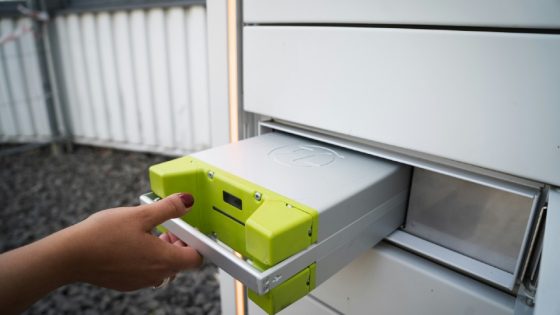Over 5 million BEVs will be sold with a Battery Digital Passport in Western Europe in 2027, where global manufacturers will have to start creating battery Life-Cycle Assessments (LCAs) by 2025. LCAs provide the critical information needed to generate Battery Passports.
That’s according to ABI Research, which says amid a growing demand for sustainable choices, businesses and consumers face challenges in making informed decisions due to data gaps in supply chains. The Digital Product Passport (DPP), pioneered by the European Union, aims to simplify this task. Between 2026 and 2027, DPPs will be first implemented in the greatest environmental impact product group, batteries & vehicles.
“The Digital Product Passport will be a game-changer promoting traceability, material and energy efficiency, and repair-based business models,” says Rithika Thomas, Sustainable Technologies Industry Analyst at ABI Research. The Battery Digital Passport is a digital twin of the battery, which stores information about the battery with a QR code, serial number, and supporting unique verification documents to demonstrate the circular flow of resources from raw mineral extraction to material production, manufacturing, operation, and recycling. The battery passport aims to be a global one-stop verification for battery quality and responsible manufacturing.”
Successful DDPs rely on strategic data management across ecosystem players. Manufacturers must invest in robust tools for supply chain data and disclosures to unlock the full potential of DPPs. Initiatives like the Global Battery Alliance, with partners such as Audi and Tesla, along with Circularise, Circulor, Minespider, Minviro, and Siemens, prototype Battery Passports to enhance transparency in the battery value chain, reshaping the EV battery industry for a circular and sustainable future. As technology advances, secondary ecosystems, like the recycling market and second-life batteries, will thrive, offering significant carbon emissions advantages in applications such as stationary storage for photovoltaic systems, emergency power supplies, or power buffers for fast charging.
DPPs are an emerging technology within the circular economy framework. Diversifying data collection and applications in consumer goods, construction, apparel, and food sectors through solutions like those from Avery Dennison, Kezzler, PSQR, 3E, Madaster, and Circuland expands long-term business opportunities. Using DPP for customer engagement and showcasing sustainability commitment ahead of product-specific regulations is crucial.
Detailed product information communicates a company’s dedication to sustainability, quality, regulations, and transparency. “DPP facilitates data collection, collaboration, and informed decision-making, optimizing production and identifying cost-saving and circularity opportunities. Recognized as powerful tools for transparency, digital product passports aggregate lifecycle information on a common platform. Proactive companies gain investment, customer acquisition, regulatory influence, transparency improvement, and operational compliance benefits through sustainability reporting and data transparency,” Thomas concludes.
These findings are from ABI Research’s Digital Product Passports: Tech-Driven Sustainability and Traceability for EV Batteries, Construction Materials and Pilot Use Cases.






